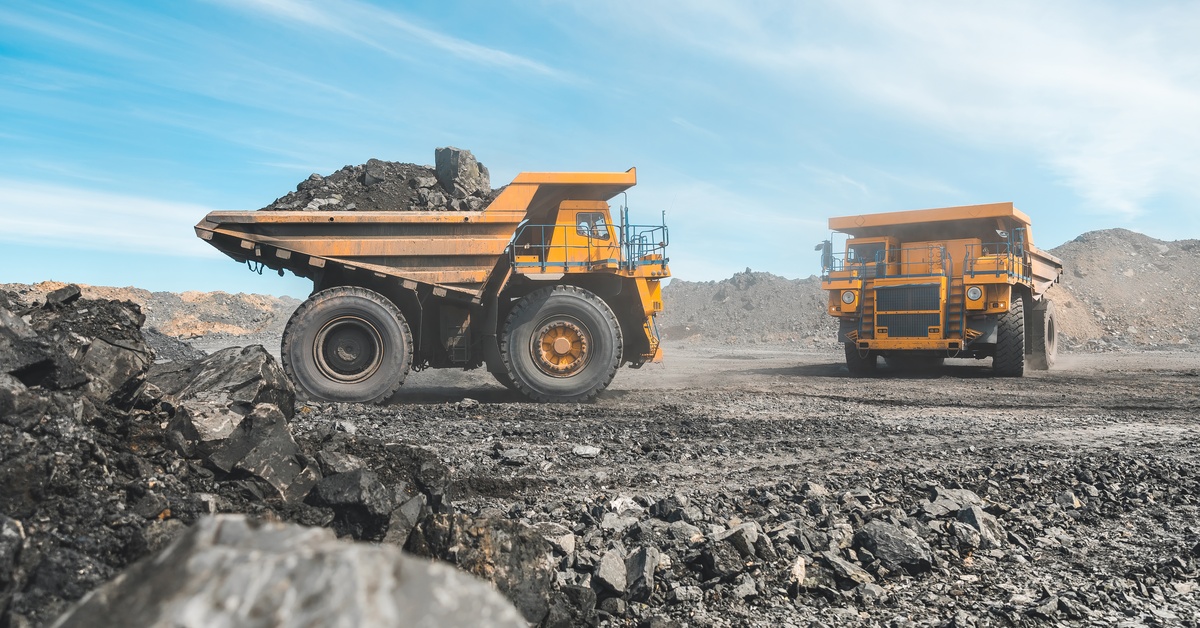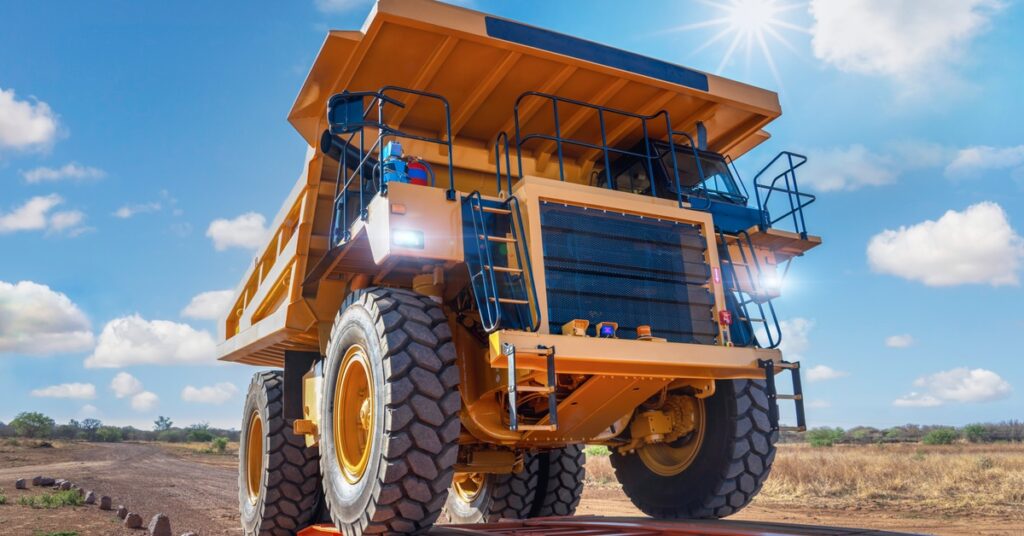Heavy-duty applications demand components that can handle extreme stress, harsh environments, and continuous operation. Upgrading to a custom driveshaft is a smart decision because it delivers superior durability, improved efficiency, and reduced maintenance, justifying the investment through lower total cost of ownership. Improve your daily operations by understanding the benefits these custom components provide for the mining industry.
Understanding Heavy-Duty Driveshaft Requirements

Heavy-duty applications require specialized components that withstand the harsh conditions of the worksite. These environments expose driveshafts to extreme temperatures, corrosive materials, constant vibration, and high torque loads that can destroy inadequate components. Standard driveshafts fail under these conditions because manufacturers design them for typical automotive applications with predictable loads and operating environments. With heavy machinery driveshafts, operators can perform work with ease.
Load Capacity Considerations
Custom driveshafts for heavy-duty applications must accommodate higher torque and power transmission requirements. Mining equipment often operates at maximum capacity for extended periods, which creates continuous stress on powertrain components. The driveshafts must handle these loads without failing or compromising performance.
To create a driveshaft that accommodates these capacities, engineers calculate load requirements based on application parameters, including engine output, operational duty cycles, and peak torque demands. These calculations determine if the custom driveshaft provides adequate safety margins while maintaining optimal weight and efficiency characteristics.
Environmental Challenges
Heavy-duty applications expose driveshafts to harsh environmental conditions that accelerate component degradation. For instance, dust, moisture, extreme temperatures, and chemical exposure encourage corrosion that attacks standard materials and protective coatings.
Custom driveshafts address these challenges through specialized material selection, advanced protective coatings, and enhanced sealing systems. These features protect components from environmental damage and maintain performance throughout the operational lifecycle.
Benefits of Custom Driveshaft Solutions
Upgrading to a custom driveshaft for heavy-duty applications provides operational advantages that improve equipment performance and reduce total operating costs. These benefits justify the initial investment through improved reliability and reduced maintenance requirements.
Enhanced Durability and Reliability
Custom driveshafts deliver durability through proficient material selection and advanced manufacturing processes. High-strength steel alloys, precision machining, and specialized heat treatments create components that withstand extreme operating conditions without premature failure.
By implementing these reliable components within the design process, manufacturers can reduce downtime and maintenance costs. Meanwhile, operators can rely on custom driveshafts to perform under various conditions.
Improved Operational Efficiency
Enhanced efficiency reduces fuel consumption and improves equipment performance. Operators will notice improved acceleration, higher top speeds, and better responsiveness from their equipment when custom driveshafts optimize power transmission.
To achieve these results, custom driveshafts reduce energy losses and improve torque delivery characteristics. Precision balancing, optimized length-to-diameter ratios, and advanced joint designs minimize vibration and power losses throughout the drivetrain system.
Material Selection and Design Considerations
Custom driveshaft manufacturing requires careful material selection and design optimization to meet the requirements of the application. Engineers evaluate multiple factors to determine the optimal configuration for each application.
High-Strength Steel Alloys
High-strength steel alloys offer regulated strength-to-weight ratios while maintaining the ductility necessary to absorb shock loads and vibrations. For alloy selection, manufacturers consider strength requirements, environmental conditions, and cost constraints. The versatility of alloys makes them suitable for use in heavy machinery.
Advanced Heat Treatment Processes
Heat treatment processes improve material properties throughout the driveshaft structure. Controlled heating and cooling cycles create uniform grain structures that maximize strength for flexibility and impact resistance.
Specialized heat treatment processes also improve wear resistance and fatigue life. These treatments offer consistent performance throughout the operational lifecycle and reduce the risk of premature failure.
Precision Manufacturing Techniques
Precision manufacturing results in custom driveshafts. For example, computer-controlled machining, precision balancing, and quality control procedures guarantee that every component meets performance requirements.
Manufacturing precision directly impacts operational performance and reliability. Tight tolerances reduce vibration, improve efficiency, and extend component life through optimized stress distribution.
Application-Specific Customization

Custom driveshafts may require modifications to address unique operational requirements. Engineers evaluate each application individually to determine optimal design parameters and performance characteristics.
Mining Equipment Requirements
Mining equipment presents extreme challenges for driveshaft design due to high torque requirements, harsh environmental conditions, and continuous operation cycles. Custom driveshafts for mining applications incorporate specialized features to address these challenges. Reinforced construction methods, corrosion-resistant materials, and enhanced sealing systems protect driveshafts from the abrasive and corrosive conditions in mining operations.
Construction Vehicle Applications
Construction vehicles require custom driveshafts that can handle variable load conditions and frequent starting and stopping cycles. The driveshaft must accommodate rapid acceleration and deceleration to achieve smooth power transmission. Custom driveshafts perform consistently under light or heavy loads.
Industrial Machinery Integration
Industrial machinery suffers when new components don’t integrate seamlessly with existing systems. Mismatched driveshafts can cause wear and downtime, leading to inefficiencies that derail productivity. These compatibility issues disrupt operations and drain valuable resources over time.
Custom driveshafts align perfectly with machinery, which eliminates costly adjustments, enhances equipment reliability, and keeps operations running smoothly.
Installation and Maintenance Best Practices
Proper installation and maintenance procedures improve custom driveshaft performance and service life. Following manufacturer recommendations allows operators to get the most out of their system before performing replacements and repairs.
Professional Installation Requirements
Professional installation uses custom driveshafts that operate within design parameters from initial startup. Trained technicians understand proper alignment procedures, torque specifications, and balancing requirements that affect long-term performance.
Incorrect installation can cause premature failure, reduced efficiency, and safety hazards. Partnering with a specialist eliminates these risks and maintains warranty coverage throughout the service period.
Preventive Maintenance Programs
Preventive maintenance extends custom driveshaft service life and helps operators identify potential issues before they worsen. Regular inspections, lubrication services, and component replacements support optimal machinery performance.
Maintenance might include vibration analysis, joint inspection, and lubrication system evaluation. These activities identify wear patterns and potential problems that require attention before they cause disruptions.
Performance Monitoring Systems
Performance monitoring systems track driveshaft operation and determine developing issues through real-time data analysis. Temperature monitoring, vibration analysis, and torque measurement systems provide early warnings of potential problems.
Also, monitoring systems enable predictive maintenance approaches that minimize downtime. Operators can address developing issues during planned maintenance windows rather than responding to unexpected failures.
Bull Powertrain offers industrial driveshafts that withstand the harsh conditions of heavy-duty work. With help from our specialists, you’ll be able to find the perfect component that boosts your equipment. Visit our website or contact our team today to learn more about the custom driveshafts we provide.

